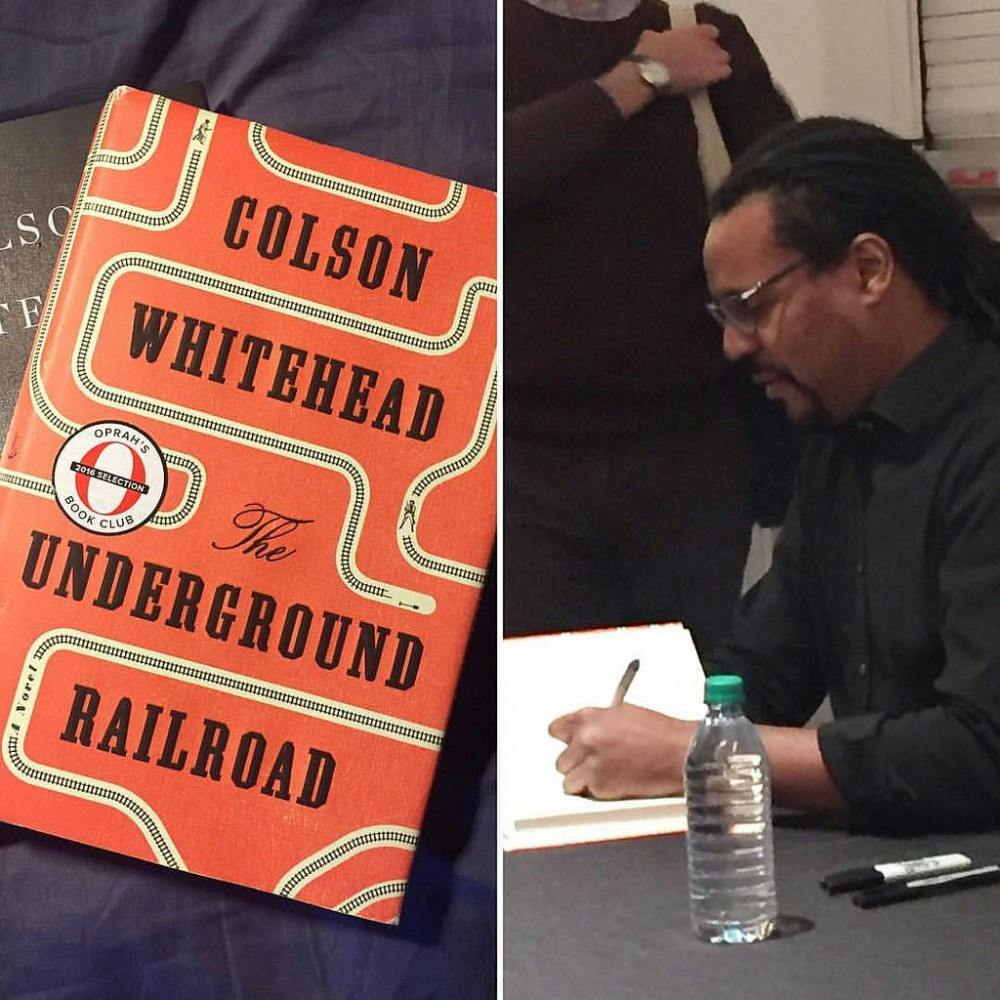Book: The Underground Railroad by Colson Whitehead
Recommended by: Hughes Ransom
Genre: Historical fiction
Synopsis that won't give away the plot:
Colson Whitehead’s journey to writing the Pulitzer Prize, National Book Award–winning novel The Underground Railroad is a lesson in empathy almost as powerful as the story he tells. Sixteen years ago, Whitehead had a simple idea, an idea many of us shared: What if the underground railroad was an actual railroad? Not a huge leap in logic, the idea seems easy to pursue. Usually, students think it is a real railroad before being swiftly corrected. However, Whitehead saw it as enormously complicated idea. The railroad meant confronting American slavery, facing the violence and devastation within it and experiencing the pain of his ancestors (his great–grandparents on his mother’s side were slaves). No story is just one idea, and he was not ready for this one.
Come September 2014, Whitehead had written seven novels, won a MacArthur fellowship, a Guggenheim fellowship and decided he was ready to begin his eighth novel, The Underground Novel. As he says in interviews, he was more mature, more knowledgeable and more empathetic. Finally, he was ready take on American slavery. He read primary slave accounts from the Works Progress Administration, Toni Morrison’s Beloved and other famous slave accounts like Harriet Jacob’s “Incidents in the Life of a Slave Girl”. Rising up to tell this story involved deep learning, personal reflection, humility and a true artist’s patience.
Whitehead brings Cora, a runaway slave, to life as she flees her plantation in Georgia. She is at least a third–generation slave, as the book starts with stories of Cora’s grandmother, Ajarry, and her mother, Mabel, who also escaped the Georgia plantation. He captures the historical roots of slavery right off the bat and writes with heartrending accuracy. Tying in symbols such as ghosts, the full moon, families and others, he blends the fantastical with the matter–of–fact to unearth the devastating truth of American slavery. Mirroring the slave accounts he read before writing this, Whitehead writes the violence Cora endures with a steady and passive tone––rape, whippings and a caning that leaves her with a scar. And for all the terror inflicted on Cora, she sees much more happen to others. On the plantation, she sees runaways burned to death, hanged and whipped for entertainment. And she remembers every single one of them, which she calls “miseries on miseries.” How can one witness such horror and still have the bravery to run? Whitehead answers that simply: there’s nothing really to lose when you’re property.
Line that tickled your eyeballs:
“The other patrollers were boys and men of bad character; the work attracted a type. In another country they would have been criminals, but this was America.”
Who you'd recommend it to:
People who want to read a modern classic of literature (our kids will be readin’ this in English).
Why it's your summer pick:
I know, summer books are supposed to be light, easy to read and fun. This book isn’t, but I chose it as my summer pick because of how necessary it is. Be ready, because the lessons of this book are grim. While I read, I was constantly reminded of the horrors of slavery, and constantly called to reflect on my own role in them. I would be hard pressed to find lessons that are more relevant to American race relations today. Whitehead describes a freed slave being stopped on the roads purely for being black, resembling modern day stop–and–frisk. Cora is placed in a museum exhibit inaccurately tells the story of the slave ship and the plantation, bringing to mind debates surrounding high school American history courses today. In teaching them, Whitehead hides nothing, using each word in each sentence to its maximum potential. At the end of each chapter, I sighed loudly, debating internally whether I could handle another 20 pages.
To this day, I still don’t know how I handled this book, but I am overwhelmingly glad that I read it. The Underground Railroad is a book that will be read in schools for year to come, and I would not have it any other way. It paints so vividly a world that forgets black lives matter every single day, and that message begs to be shared. The saddest part is the eternity of it all. Cora is a character people will never forget. Becoming truly free from the plantation life is a goal that may never be reached. Slavery is an institution that will never be lived down. But Whitehead at least encourages us to recognize those facts.
Where you're reading it:
I’m in Washington DC for the summer, so reading about the dark history of the US is fitting. Walking by the monuments, the Capitol building and the White House seduces me to the point that I sometimes forget the role slavery played in it all. Books like these serve as necessary reminders of that role.

